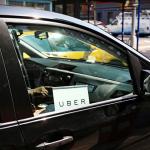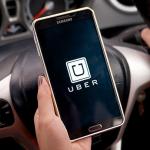Uber Settlement
(Updated Aug. 28, 2018)
Uber Technologies, Inc. is facing multiple state-specific lawsuits across the country that claim the ride-hailing company improperly classifies drivers as independent contractors. Plaintiffs in these lawsuits allege that they should be reclassified as Uber employees, a shift that would entitle drivers to benefits such as gas and mileage reimbursement, health insurance, and overtime pay.
Driver classification lawsuits are hardly Uber’s only legal problem.
One Uber class action lawsuit reached a tentative settlement, but a judge struck it down (see below: "Judge Rejects $100 Million Uber Settlement").
Driver classification lawsuits are hardly Uber’s only legal problem. In 2015, Uber was hit with 50 U.S. lawsuits—far more than any other so-called “Unicorn” start-up. The lawsuits challenge Uber’s business practices and could change the way it operates moving forward.
$10M Settlement for Harassment and Wage Gaps
To resolve an October 2017 lawsuit alleging sexual harassment and a hostile work environment, Uber agreed to pay $1.9 million to 56 female employees. Each employee will receive roughly $34,000.
Additionally, Uber will pay $5.1 million to those 56 employees plus 424 others who allege they were the victims of unfair pay disparities. These employees will each receive around $11,000 to compensate them for the alleged wage gaps.
These payments are part of a larger $10 million settlement that Uber reached in March 2018.
$20M Settlement for Embellished Earnings
In January 2017, Uber agreed to pay $20 million to settle U.S. Federal Trade Commission (FTC) charges that it had exaggerated how much its drivers would earn in order to attract new drivers. According to the FTC:
...Uber claimed on its website that uberX drivers’ annual median income was more than $90,000 in New York and over $74,000 in San Francisco. The FTC alleges, however, that drivers’ annual median income was actually $61,000 in New York and $53,000 in San Francisco. In all, less than 10 percent of all drivers in those cities earned the yearly income Uber touted.
The FTC also alleges that Uber misrepresented its vehicle leasing programs, advertising significantly lower costs than drivers would ultimately pay. As part of the terms of the settlement, Uber agreed to stop "making false, misleading, or unsubstantiated representations about drivers’ income; programs offering or advertising vehicles or vehicle financing or leasing; and the terms and conditions of any vehicle financing or leasing."
Undisclosed Sexual Assault Settlement
In November 2016, Uber settled a lawsuit filed by two female passengers who were sexually assaulted by their Uber drivers: one in Boston and one in Charleston, South Carolina. The settlement was for an undisclosed amount.
The incidents occurred in 2015, at a time when the company was under scrutiny for the thoroughness of their driver background checks.
$384k Driver Gratuity Settlement
Uber reached a settlement with a group of passengers who claim the ride-hailing service unlawfully took a share of 20% driver gratuities. Announced on July 20, 2016, the settlement is worth about $384,000. The amount will be divided among nearly 47,000 eligible class members, identified as all individuals who received an email from Uber stating that it would automatically charge a 20% “gratuity” when taxi rides were arranged and paid for through Uber's service from April 20, 2012 to March 25, 2013.
Named plaintiff Caren Ehret filed suit against Uber in January 2014, saying that she used the Uber app to hire a driver in Chicago and was charged the mandatory 20% tip in addition to the metered fare cost. According to the lawsuit, Ms. Ehret was led to believe the entire 20% would go to the driver, when in fact Uber retained part of the tip for itself as revenue.
The rides in question were arranged through uberTAXI, an option available for a limited time in Chicago, New York, Washington D.C., San Francisco, and Boston.
$45k Blind Passenger Settlement
A California judge granted preliminary approval in July 2016 to a class action lawsuit brought by three blind plaintiffs who claim they were denied rides from Uber drivers because of their service dogs.
Uber's settlement provides $15,000 apiece to the three plaintiffs who filed the lawsuit. Uber also agreed to pay $225,000 over three years to the National Federation of the Blind, plus an additional $75,000 if the term agreement is extended a fourth year.
The class may pursue damages claims via individual lawsuits.
Under the settlement, Uber will block drivers from receiving trip requests until they confirm that they're willing to transport riders with service animals. Drivers who don't comply with the service animal policy or who refuse to transport riders with service animals will be terminated from the Uber platform.
The judge certified the class and plaintiffs nationwide are now eligible to join. But the lawsuit does not provide for class-wide monetary relief. Instead, the class may pursue damages claims via individual lawsuits.
In 2014 the National Federation of the Blind sued Uber on behalf of all blind individuals in California who use a service animal and were denied rides. The lawsuit was a response to allegations that some blind riders were refused service by Uber drivers who did not want guide dogs in their vehicles.
Undisclosed Wrongful Death Settlement
In July 2016, Uber privately settled a lawsuit for the death of a six-year-old girl. On New Year's Eve in 2013, Sophia Liu was hit by an Uber car while walking in a San Francisco crosswalk. At the time of the accident, the ride-sharing app was engaged and the Uber driver was accepting passengers.
$7.5M Background Check Settlement
Uber reached a $7.5 million settlement in June 2016 with drivers who alleged that the car service provider terminated them after obtaining their consumer background reports without permission.
$25M California Background Check Settlement
A settlement worth up to $25 million was reached with Los Angeles and San Francisco district attorneys in April 2016 to resolve claims that Uber misled consumers about its driver screening methods. The California civil suit alleged that Uber mischaracterized its driver safety screening process. Uber did not use fingerprint-based background checks, which according to California is the most comprehensive screening methodology. Uber has called its background checks “industry leading.” The California district attorneys said Uber’s vetting process failed to uncover the criminal records of 25 drivers.
$28.5M “Safe Rides Fee” Class Action Settlement
The lawsuits said that Uber’s “Safe Rides Fee” was not “industry leading” as Uber claimed because it did not include fingerprinting.
Uber agreed in February 2016 to settle two class action lawsuits alleging safety practices misrepresentation for $28.5 million. The lawsuits were brought by customers who said that Uber’s “Safe Rides Fee,” which supports its background check process, was not “industry leading” as Uber claimed because it did not include fingerprinting. (Taxi drivers in California are required to use fingerprint identification when running background checks.)
Uber also agreed to change the name of its “Safe Ride Fee” to “Booking Fee.” The class action lawsuits cover up to 25 million California Uber riders.
In August 2016, U.S. District Judge Jon Tigar in San Francisco rejected the settlement, claiming that Uber's offer "rings hollow." Judge Tigar argued that the sum wasn't enough, especially when accounting for customers who paid the fee multiple times.
Judge Rejects $100 Million Uber Settlement
In April 2016, Uber agreed to settle two class actions representing 385,000 drivers in California and Massachusetts. Under settlement terms, eligible drivers would have remained contractors but would have been entitled to a share of the $100 million based on the number of miles they’ve driven. Uber also agreed to partially fund a “Driver’s Association” and to provide more information about why some drivers are deactivated from Uber.
Dozens of drivers considered Uber's settlement unfair and filed objections, including the lead plaintiff, driver Doug O'Connor, who fired his attorney and retained new representation.
In Mr. O'Connor's formal objection filed with the court, he said that the deal “is not in my interest or in the interest of any Uber driver.”
In August 2016, U.S. District Judge Edward Chen rejected the settlement, saying it was not “fair, adequate, and reasonable” for drivers.
Uber would pay just $1 million in state penalties, which could otherwise total more than $1 billion.
In his rejection of the deal, Judge Chen noted that the amount offered to drivers was just ten percent of what the lawsuit claimed drivers were owed. He also emphasized that Uber would (under the terms of the deal) pay just $1 million in state penalties, which could otherwise total more than $1 billion.
$27 Million Lyft Settlement
In March 2017, Uber's ridesharing rival company Lyft reached a $27 million settlement with 200,000 drivers in California. Drivers who worked for Lyft more than 30 hours per week will likely receive several thousand dollars apiece as part of the agreement.
Unfortunately, these drivers will remain independent contractors moving forward.





